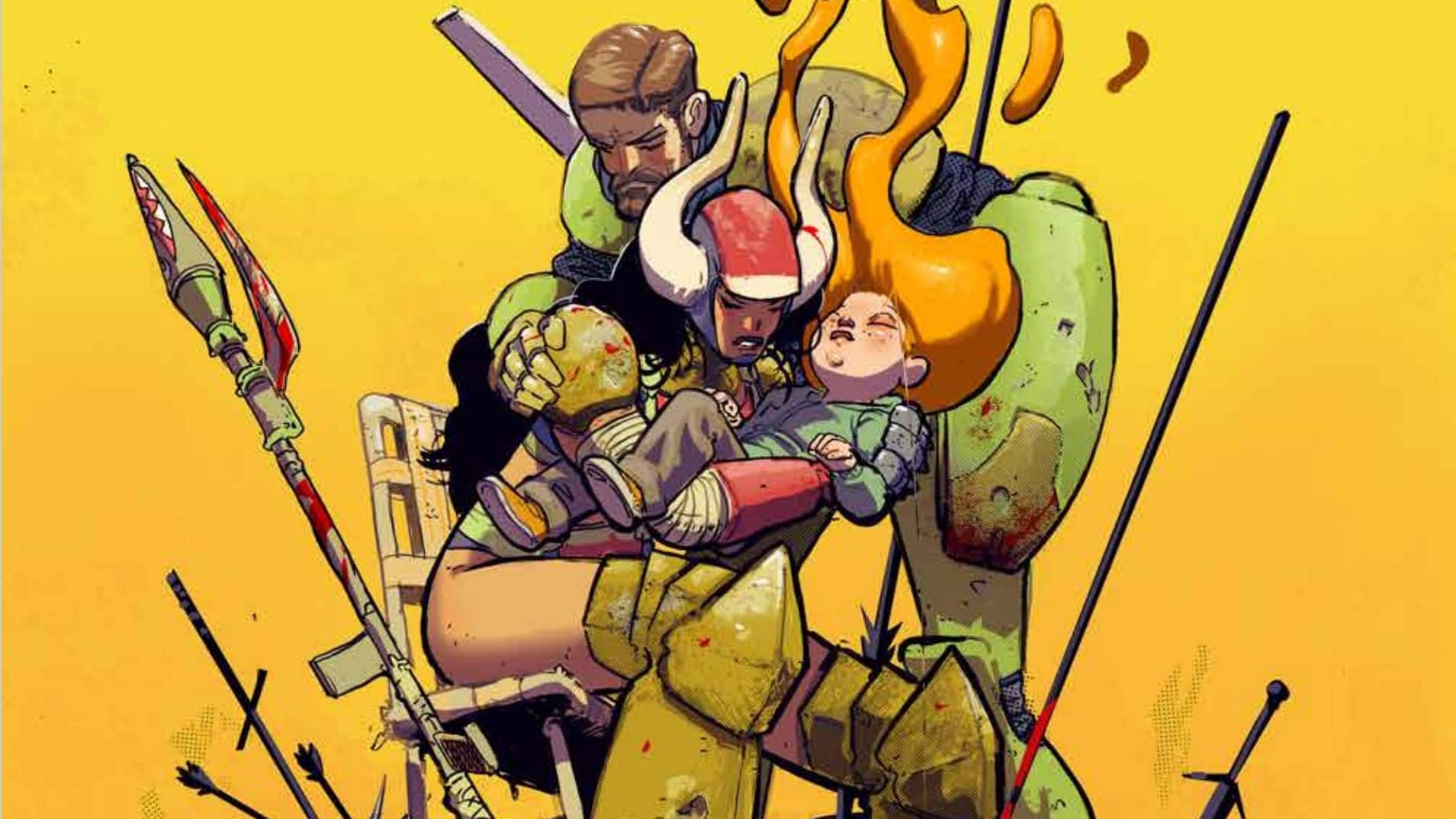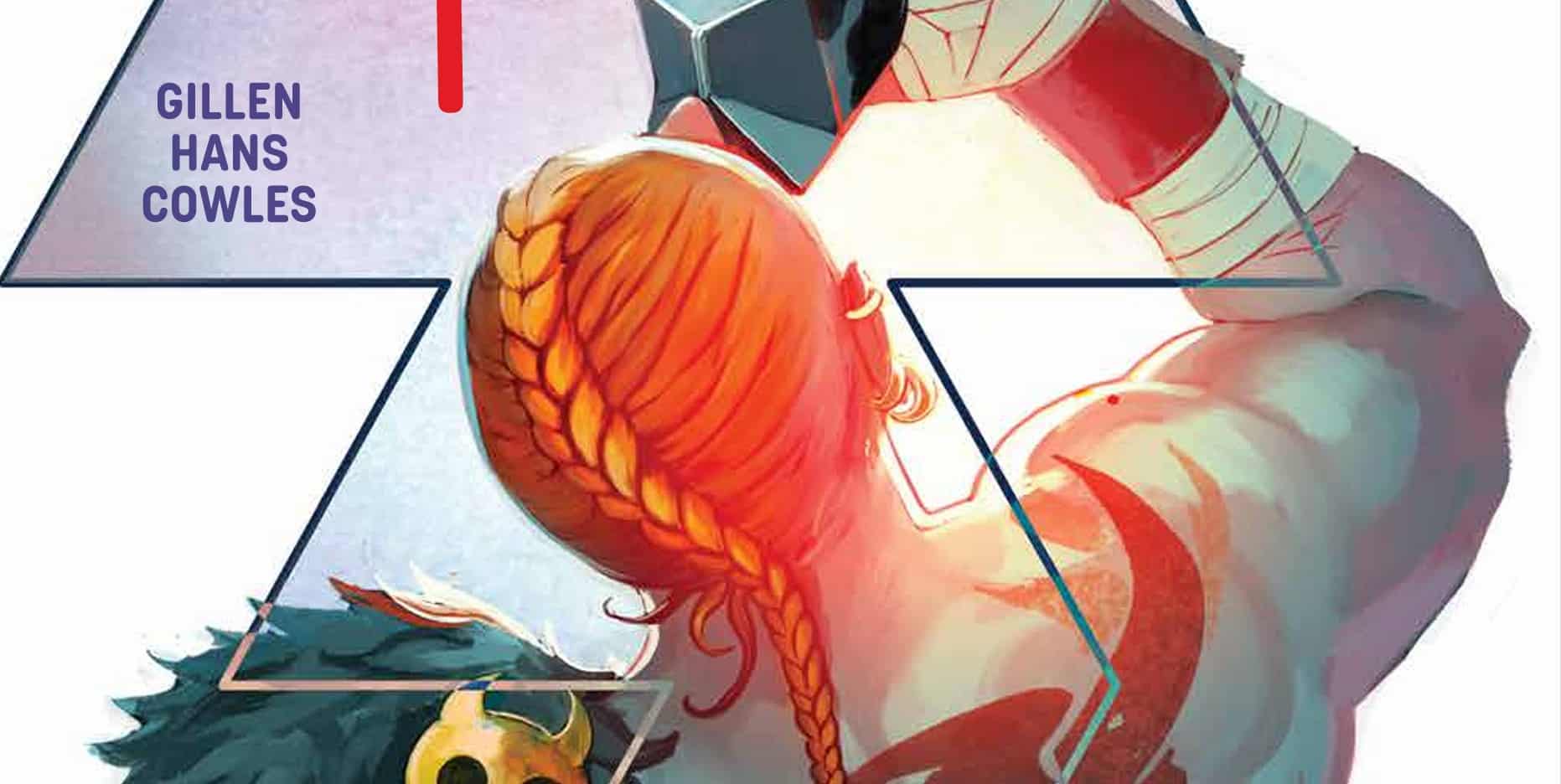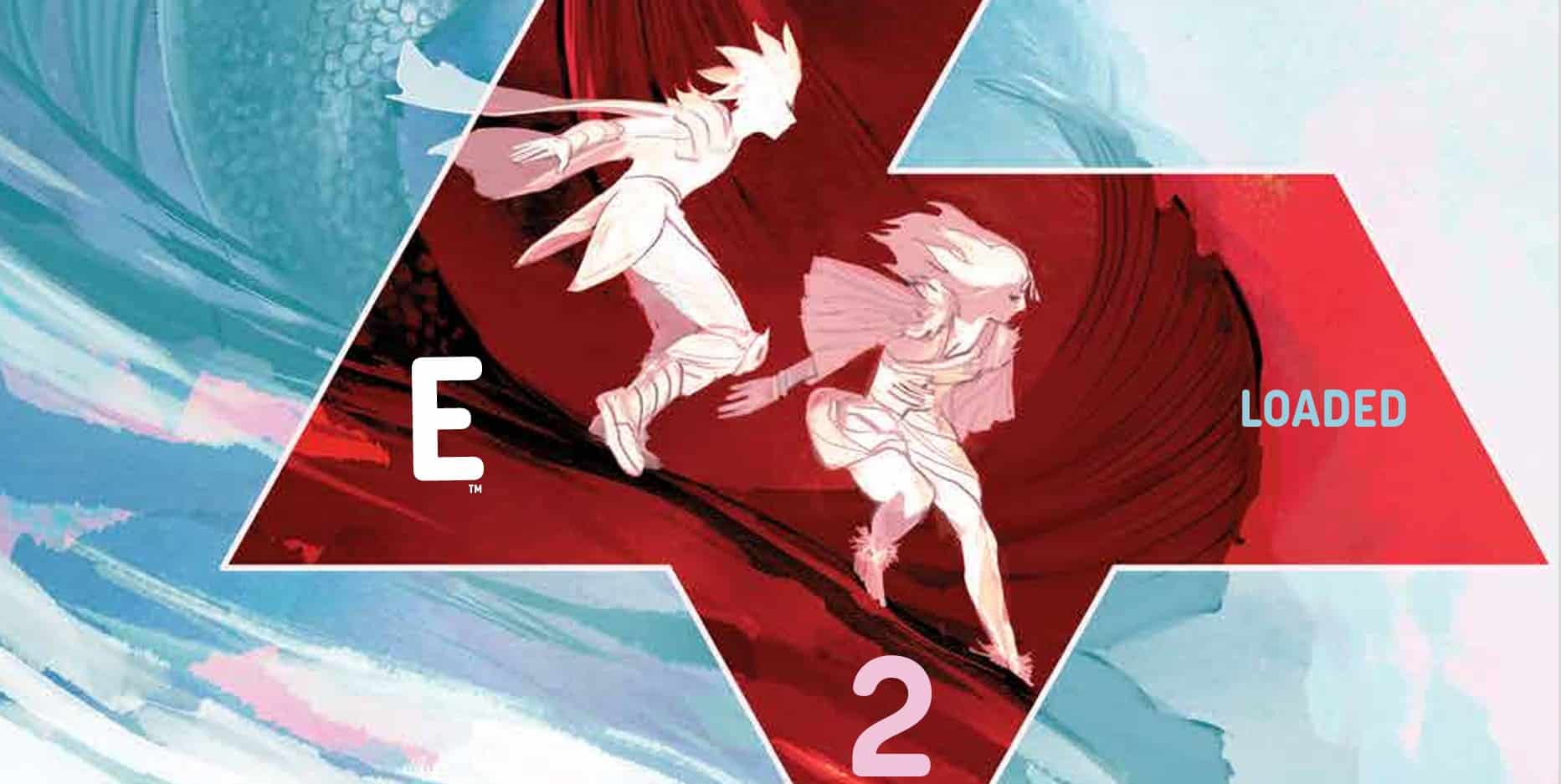Sam and Duncan LaMarr love their 6-year-old daughter, Penny, more than anything in the whole world. But half a year ago, she was taken by The Cascade, an evil force they barely understand. Now, Sam and Duncan must fight side by side with the magical beings Penny cherished to try and get her back, before she’s gone forever. The Moon Is Following Us #1 is co-created by Daniel Warren Johnson and Riley Rossmo and colored by Mike Spicer for Image Comics.
As someone who recently became a father for the first time, the existential question of “who am I as a parent?” has preoccupied my mind quite a bit. What does it mean to give everything to your child? Where is the boundary between protection and exploration? Between self-sacrifice and self-sustenance? Fundamentally, am I doing the right thing?
The fact that a story involving a gun-toting, cigar-smoking anthropomorphic frog called Brio can invite these questions is a testament to the unique magic of comic books. In The Moon Is Following Us #1, the two sides of this internal conflict are symbolized by parents Duncan and Sam, who are on a mission to save their daughter Penny from her captors, The Cascade. Their voyage takes them through a rich patchwork of a fantasy world, with fantastical creatures drawn from a variety of fantasy settings and eras, borne of the innocent, endlessly curious and absorbent imagination of a child. Riley Rossmo’s rich worldbuilding, diverse character design and propulsive linework immediately draws the reader in to Duncan and Sam’s frenetic and ferocious struggle for their daughter’s freedom.
The contrasts between parents, which Daniel Warren Johnson described as his two competing inner parental instincts to protect and to guide his children through the world on The ComicsXF Interview Podcast, is immediately apparent in their language. Duncan is tentative and passive, as he timidly pledges to “try” to save Penny. Sam, on the other hand, is decisive and impatient, vowing to “tackle things head on.” The contrast is also evident in their design. Duncan’s face is entirely visible, his costume neat and orderly, retaining the last remaining vestiges of himself before this tragedy. Sam, meanwhile, has taken on the mantle and the look of a warrior, her body battered and bruised. Rossmo draws her face as manic at times, her facial features exaggerated and wild, as opposed to his neat, impressionistic rendering of Duncan.
At the heart of it all is the fundamental question of what they are willing to give of themselves to save their daughter. For Sam, the answer is simple: everything. She is willing to give up her life, her health, her identity to save her daughter. Duncan is more concerned with what will be left for their daughter once they’ve done so. Both are positions borne of love, and while you can’t help but be frustrated by Duncan’s indecisiveness, it’s clear that both carry their weight within their relationship and their mission.
But all is not all as it seems. There’s an absolutely heartbreaking twist toward the end of the issue, which brings the reader back down to earth with a thud. Just as you learn enough to be engrossed in this new world, you are dealt a crushing blow as you discover that the world we’re seeing is merely a projection. The twist is delivered deftly through an artist change, with Johnson dragging the reader into a domestic scene and into the tragedy of Dun and Sam’s reality. The final page reveals their daughter Penny lying in a coma, hooked up to the same machines that appear to be connecting them to the dream world. It’s both tragic and utterly compelling. The way The Moon Is Following Us combines thrilling fantasy action with devastating realism is phenomenal, carried by rich and constantly adapting art and simple, powerful thematic symbolism. This comic is special, and should be treasured. I can’t wait to see what the rest of the series brings.
Buy The Moon Is Following Us #1 here. (Disclaimer: As an Amazon Associate, ComicsXF may earn from qualifying purchases.)
Jake Murray spends far too much time wondering if the New Mutants are OK. When he's not doing that, he can be found talking and writing about comics with anyone who will listen. Follow him @stealthisplanet.bsky.social.






